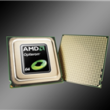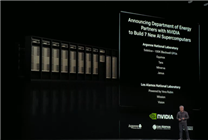Summary
- President Trump discussed Nvidia’s chip exports during an interview, emphasizing the importance of the U.S. government as an intermediary.
- Nvidia is reportedly developing a new AI chip tailored for the Chinese market, potentially called B30A, which may have performance levels of around 80% compared to the Blackwell GPU.
- The U.S. maintains a cautious stance on China’s AI chip export policies, while Nvidia’s CEO actively seeks to ease restrictions.
Trump Talks Nvidia: The Future of AI Chip Exports to China
In a recent interview aboard Air Force One, former President Donald Trump confirmed he has not engaged in discussions regarding the export of Nvidia’s latest AI chips, particularly the Blackwell GPU, to China. Despite this, he acknowledged having conversations about semiconductor technology with various stakeholders, signaling ongoing American interest in the chip market.
Trump stated, "We talked about chips. They will talk to companies like Nvidia about sourcing chips. We make great chips, and Nvidia is the leader. I will also talk to Jensen Huang at Nvidia." This reflects his administration’s strategic view that the U.S. plays a critical role as an intermediary in facilitating discussions about chip sourcing, effectively positioning the government as an arbiter in high-stakes technology negotiations.
Market Dynamics and Strategic Interests
The former president’s remarks seem to indicate a desire to continue the flow of Nvidia’s H20 chips to the Chinese market. Notably, the U.S. government stands to gain a 15% share from these sales transactions, demonstrating both a financial and strategic interest in maintaining this trade relationship.
In response to the evolving demands in the AI sector, Nvidia is reportedly working on a customized chip designed specifically for the Chinese market, believed to be named B30A. This new model purportedly aims to provide performance levels around 80% of the original Blackwell architecture. Such a development could bridge the gap in AI capabilities for Chinese companies while satisfying regulatory scrutiny from U.S. authorities.
U.S. Stance on AI Chip Exports
Market analysts highlight that the U.S. government currently adopts a cautious stance concerning China’s AI chip export policies. With heightened scrutiny on technology transfers and national security considerations, any adjustments to these policies remain closely monitored.
Nvidia CEO Jensen Huang is actively lobbying for more favorable conditions regarding export controls to China, emphasizing the critical importance of the Chinese market for Nvidia’s growth and innovation trajectory. Huang’s efforts demonstrate a concerted strategy to maintain an edge in an increasingly competitive global AI marketplace.
Implications for the AI Industry
As both the U.S. and China invest heavily in AI capabilities, the dynamics of semiconductor exports will play a pivotal role in shaping the future landscape of technology. The interplay between U.S. regulatory frameworks and corporate ambitions will undoubtedly influence global supply chains and technological advancement.
Tech industry insiders are keeping a close watch on how these negotiations evolve. The outcome could significantly impact both Nvidia’s market position and the broader competitive landscape among AI firms globally.
The ongoing developments underscore the delicate balance in international trade, particularly within the tech sector, where innovation and regulation often find themselves at odds.
In conclusion, as discussions around AI chip exports to China unfold, all eyes will remain on major players like Nvidia, the responses from the U.S. government, and their implications for the future of artificial intelligence.










